9 ways to care for your baby’s skin in winter
Protect sensitive skin, relieve cold-weather dryness, and more.
Updated on March 22, 2023
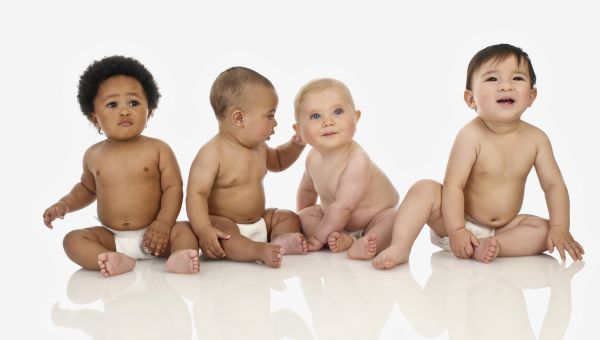
Winter is tough on anyone’s skin, but it’s especially hard on the delicate skin of babies. Itchiness, dryness, and eczema are just a few problems that can arrive with chilly weather. Here are expert-backed ways to keep babies’ skin soft and healthy all winter long.
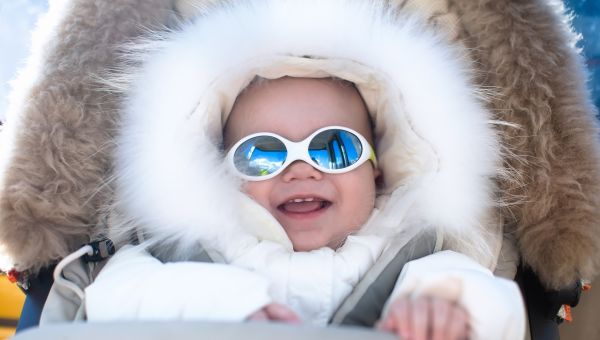
Dress in layers
It’s important to keep your baby warm, but heat and moisture trapped by excessive layering can aggravate soft skin and lead to a case of prickly heat rash. Consider this rule of thumb: Dress baby in one more layer of clothing than you’re wearing. If you think they may be overwheating, put a hand under their clothing to make sure they're not too sweaty.
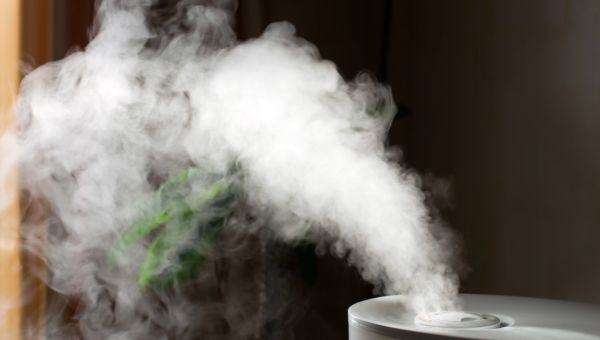
Humidify the Air
When you heat your home in the winter, the natural humidity in the air can fall to as low as 5 percent, and air that dry has the effect of drawing moisture out of the skin. Aim to keep the humidity level between 25 and 40 percent. If your child is prone to eczema flare-ups, using a humidifier can help ease the itch and burn.
Humidifiers can emit either cold or air. Both types can be beneficial for the skin as well as easing breathing (especially little airways that can get easily clogged). The American Academy of Pediatrics recommends using a cool humidifier, because a warm one can present a scalding hazard if a child were to tip it over.
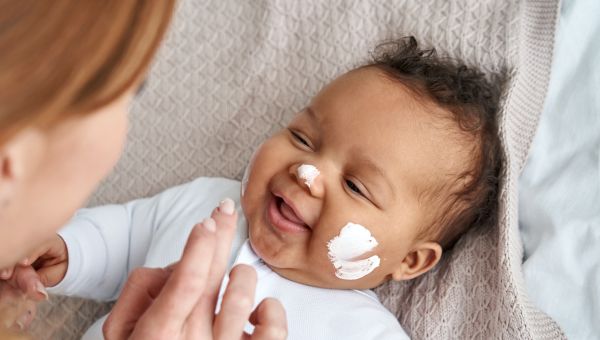
Moisturize
A baby’s delicate skin needs extra care, particularly in the winter. And though a warm bath can feel soothing in the moment, drying off can leave baby's skin even more parched than before.
After a bath, while their skin is still moist, apply a fragrance-free moisturizing cream or ointment before putting on their clothes or pajamas.
Be sure to avoid fragrances in all baby products, as scents are one of the leading causes of contact allergies. Contact allergies come from products or irritants (such as soaps or plants) that touch the skin. If you'd like to try a scented product, look for those made with an essential oils such as lavender, rosemary, or sage. Other natural moisturizers for baby may include jojoba oil, shea butter, or cocoa butter.
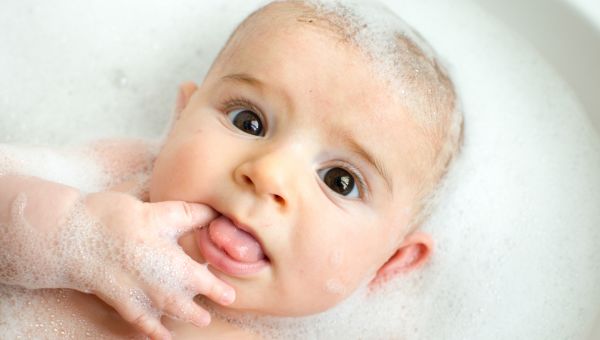
Don’t Overdo Bath Time
Many babies love splashing in the tub. But long, hot baths can dry your baby’s skin. Keep baths warm, but not hot. Limit them to five minutes and stick to an irritant- or tear-free hair and body cleanser.
If your baby’s skin becomes irritated, try alternatives to liquid soap, such as a hypoallergenic, unscented moisturizing bar, like Dove.
Another skin-hydrating trick? The “soak and seal” method. As soon as baby is out of the tub, pat their skin dry (don’t rub) and slather on a thick cream or ointment. Applying the cream immediately after drying helps seal in moisture.
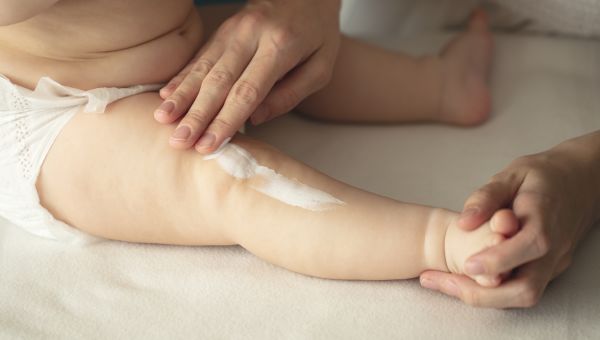
Nip Eczema in the Bud
Redness or discoloration of the skin could be a sign of eczema (also known as atopic dermatitis), particularly if it turns into scaly, itchy patches. In babies, eczema not only affects their cheeks but also the outer parts of their arms, legs, and torso as well. Some children with eczema only have symptoms in the winter months when the dryness and cold air can trigger a flare-up. Babies may be more prone to eczema if they have any family history of asthma, hay fever, or eczema.
See a healthcare provider (HCP) if scaly, itchy skin becomes a recurring problem. In the meantime, using pH-balanced, irritant-free hair and body cleansers and fragrance-free moisturizers can help reduce the chance of irritation. Look for products with the Seal of Acceptance from the National Eczema Association.
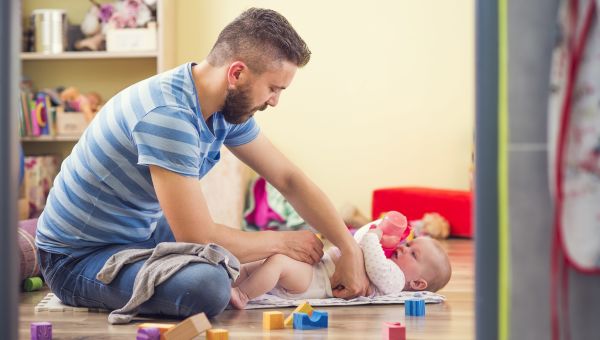
Know when to call your provider
If your baby has pronounced redness or discoloration or an itchy rash, it can be hard to know when to call for help. But if your baby seems especially bothered by itching, pain, irritability, or a fever and symptoms don't improve over two to three days, it's time to call an HCP. Be sure to visit an HCP even sooner if the affected area of skin is warm, appears to be painful, looks swollen, or spreads over the course of 24 hours.
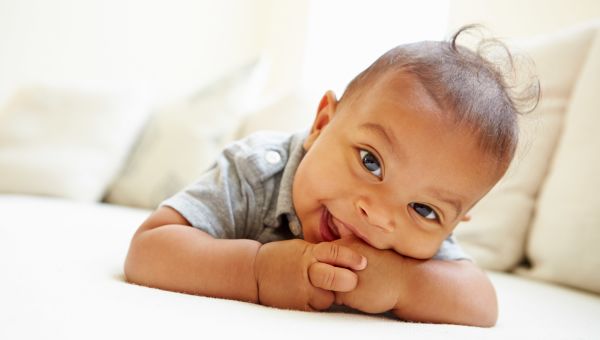
Avoid Baby Blisters
Between drooling and runny noses, the area around the lips and chin can get very irritated. Protect this area by applying a balm such as white petrolatum ointment or Aquaphor, repeating throughout the day as needed.
If your baby develops blisters or little ulcers on her lips or mouth, call an HCP. If the sores seem to keep your baby from eating or drinking, they'll need to be evaluated promptly.
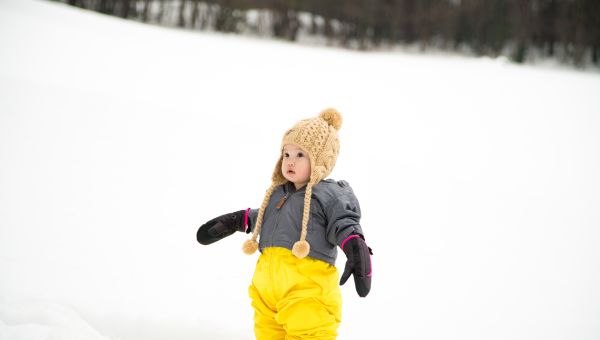
Best Clothes for Fingers and Toes
In addition to warm gloves, booties, and hats to protect fingers, toes, and heads, consider using an additional protective attachment on your baby’s stroller to protect them from the elements, such as cold winter wind.
When spending time outside in the cold, check your baby's hands and feet regularly to be sure they’re warm. Some winter accessories may be fun but not functional, so you may need to invest in a warmer hat or gloves. Remember not to overdo it, though: If baby's head becomes sweaty, remove a layer or relax the fit.
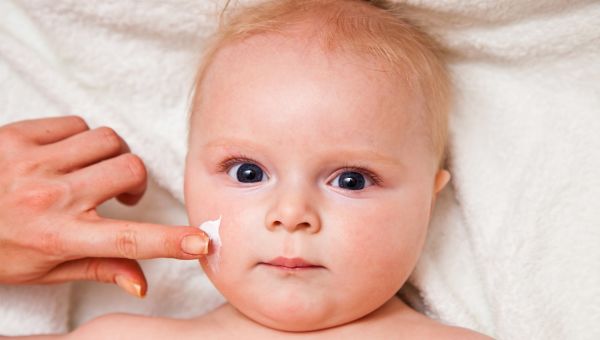
Don’t Skip the Sunscreen
You probably know that the sun’s rays aren’t any less harmful in the winter, and infants and children are more susceptible than adults are to the damaging effects of UV rays. Sunscreen is always a must when you plan to spend time outdoors. Look for nonchemical sunscreens that use non-micronized zinc oxide or titanium dioxide as the active ingredient. Some babies are sensitive to para-aminobenzoic acid (PABA), so look for protection that is also PABA-free.

HealthyChildren.org. American Academy of Pediatrics. Caring for Your Child’s Cold or Flu. Last Updated April 19, 2019.
More On


video
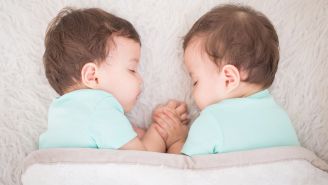
article


video


video


video
